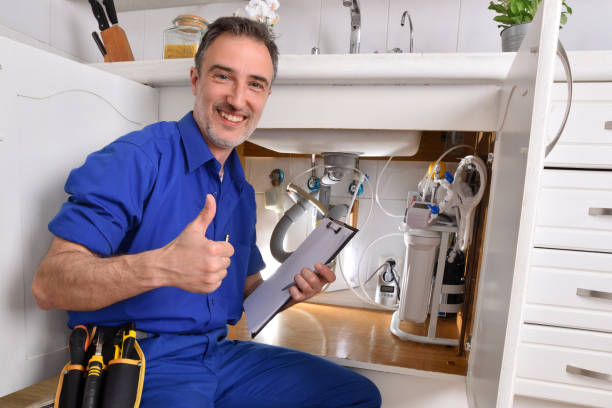Plumber Toronto
We keep things flowing

Duties and Responsibilities of A Plumber: Ever wonder what it takes to be a plumber? You probably don’t think much about plumbers or what they do until you have a clogged drain or leaky faucet. Plumbers install and repair water systems in homes and businesses. It’s not an easy job but for the right person it can be a rewarding career.
As a plumber, you get to work with your hands and solve problems that directly impact your customers. You’ll spend your days installing pipes, fixing leaks, clearing clogs, and making sure water flows where it needs to go. While it may not seem glamorous, plumbing is an essential service that provides one of life’s necessities – access to clean water.
If you like working with tools, enjoy fixing things, and want a job that will always be in demand, a career as a plumber could be perfect for you. The next time your sink is backed up, be sure to thank your plumber – they work hard to ensure we all have running water. Plumbers truly are everyday heroes.
As a plumber, your primary role is keeping people’s water systems running properly. This can involve installing, repairing or replacing pipes, drains, water heaters, toilets, sinks, and other plumbing fixtures.
There are residential plumbers who work in people’s homes, and commercial plumbers who work in large buildings like schools or hospitals. Some plumbers specialize in pipefitting, focusing specifically on pipe systems. Many plumbers do emergency repair work, available on-call to fix issues like burst pipes or backed-up drains at all hours.
To succeed as a plumber, you need:
As a plumber, you’ll have a lot of responsibilities to keep people’s plumbing systems running smoothly.
On any given day, you might:
As a plumber, you have a set of daily responsibilities and tasks to keep your schedule full.
A large part of your day involves inspecting plumbing systems in homes and commercial buildings to detect any issues, then repairing or replacing parts as needed.
This could include unclogging drains, fixing leaky faucets or toilets, repairing pipes, or ensuring water heaters, sump pumps, and other appliances are functioning properly. You’ll use specialized tools like pipe wrenches, plungers, and snake cameras to complete these jobs.
You may also handle the installation of new plumbing systems in newly constructed homes or buildings, or update and replace plumbing during remodeling projects. This could involve installing sinks, toilets, water heaters, pipes, and other plumbing fixtures. You’ll follow building plans and codes to properly size, place and connect all components.
As a plumber, you need to be available for emergency calls regarding gas leaks, flooding, or other hazardous plumbing issues. You may have to work nights, weekends or holidays to respond to these urgent situations. Quickly assessing the problem, shutting off water or gas supplies if necessary, and making temporary or permanent repairs are critical to resolving emergency plumbing calls.
Plumbers also typically spend time each day ordering any supplies needed for current and upcoming jobs. This could include pipes, fittings, sinks, water heaters or plumbing tools. You’ll also need to provide customers with estimates for larger jobs, track invoices, and handle other paperwork related to running your own plumbing business or working for a plumbing contractor.
To work as a plumber, you need a certain skill set and level of expertise. Some key requirements include:
Plumbers need to be comfortable working with specialized tools and equipment like pipe cutters, wrenches, plungers, augers, and pipe threaders. They use these tools to install, repair, and maintain water systems and plumbing fixtures. Plumbers should have a working knowledge of the plumbing code requirements for their area as well.
Plumbers frequently encounter plumbing problems and need to determine solutions. They have to evaluate issues like leaks, clogs, and malfunctioning systems and figure out the best way to resolve them. Strong critical thinking and troubleshooting skills are important.
Plumbers work directly with homeowners and building owners. They need to be able to communicate clearly with customers about the work that needs to be done. Plumbers should have good interpersonal skills to be able to address customer concerns and complaints courteously and professionally.
Plumbers may work in cramped, confined spaces at times. They need to be physically fit and flexible enough to maneuver in awkward positions. They also need to be comfortable working in a variety of settings from residential homes to large commercial buildings. Plumbers’ schedules can also be irregular since plumbing issues often arise on short notice or during off hours. The ability to adapt to varying and sometimes difficult work conditions is key.